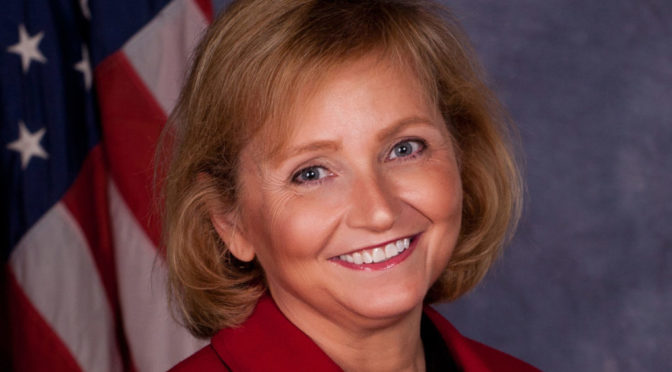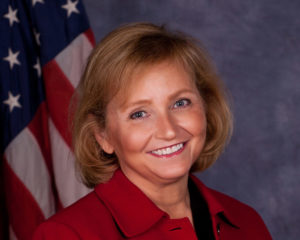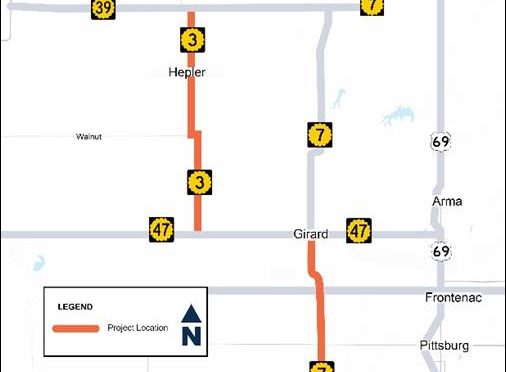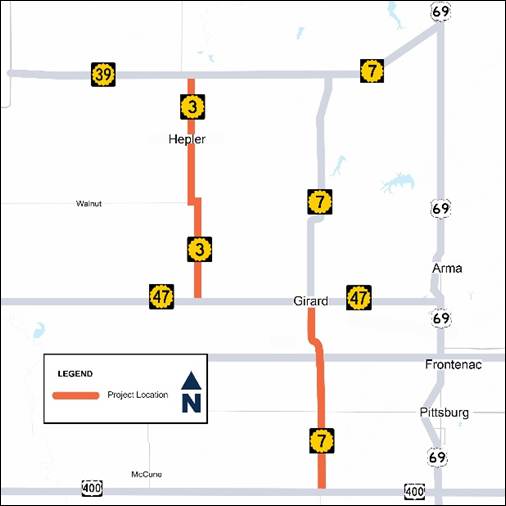TOPEKA – Governor Laura Kelly has vetoed Senate Bill 269, Senate Substitute for House Bill 2228, House Bill 2062, Senate Substitute for House Bill 2240, Senate Substitute for House Bill 2382, House Bill 2028, and Senate Bill 18. Governor Kelly also allowed House Bill 2056, Senate Bill 250, and House Bill 2263 to become law without her signature.
The following veto message is from Governor Kelly regarding her veto of Senate Bill 269:
“I have proposed and supported tax cuts when they are implemented responsibly and benefit the people of Kansas, especially those who need it most. This bill ignores Kansas families at a time of rising costs and inflation in favor of hundreds of millions of dollars in giveaways to corporations and the wealthy.
“Make no mistake, should this bill become law, it will put the state back on the path toward the failed Brownback tax experiment: the four-day school weeks, the budget cuts, and the crumbling roads and bridges that came with it.
“The income tax cuts made possible by this bill could cost the state up to $1.3 billion annually. The triggers for those tax cuts are such that as soon as the state sees an uptick in revenue, taxes will be automatically cut regardless of any other economic factors or policy and budgetary considerations.
“We’ve been down this road before, and we can’t afford to go back to failed tax experiments and policies that will stifle economic opportunity for everyday Kansans and thwart efforts to ensure a sustainable water supply essential to our rural communities. I sincerely hope the Legislature listens to the people of Kansas and rethinks priorities on tax policy.
“Therefore, under Article 2, Section 14(a) of the Constitution, I hereby veto Senate Bill 269.”
The following veto message is from Governor Kelly regarding her veto of Senate Substitute for House Bill 2228:
“As a strong supporter of local control, I believe that decisions around legal services should be handled by the local elected leaders who are on the ground and best know their communities’ needs. I do also believe there are times when the attorney general must work to safeguard the state’s interest in issues that cannot be adequately litigated by a local entity on behalf of the entire state.
“There should be additional work on this legislation to develop clearer language around the attorney general’s engagement. Also, the retroactivity language should be removed to eliminate the perception that this bill is targeted at a specific action rather than sound policy. Until those issues are addressed, I cannot sign this legislation.
“Therefore, under Article 2, Section 14(a) of the Constitution, I hereby veto Senate Substitute for House Bill 2228.”
The following veto message is from Governor Kelly regarding her veto of House Bill 2062:
“At first glance, this bill may appear to be a proposal to support pregnant women and families.
“However, this bill is yet another attempt by special interest groups and extremist lawmakers to ignore the will of Kansans and insert themselves into the lives of those making private medical decisions. It is a place where this Legislature has become all too comfortable — particularly for those who espouse freedom from government overreach.
“The motives behind this bill are clear. Instead of helping pregnant women and families, the Legislature chose to pass a bill that connects the issue to a woman’s constitutional rights. This bill is a dismissal of the will of the majority of Kansans who voted overwhelmingly in 2022 to keep politicians out of the private medical decisions made between a woman and her doctor.
“Furthermore, the provisions of this bill are questionable, and it is surprising it has been put forward. There are legitimate worries surrounding its implications, and I encourage special interest groups and their legislative supporters to reflect on the broader impact of their actions.
“Therefore, under Article 2, Section 14(a) of the Constitution, I hereby veto House Bill 2062.”
The following veto message is from Governor Kelly regarding her veto of Senate Substitute for House Bill 2240:
“Senate Substitute for House Bill 2240 is an unconstitutional overreach by the Legislature into the executive branch attempting to create an unlawful administration of the state’s Medicaid program with the legislative branch.
“Our doctrine of independent governmental branches is firmly entrenched in the United States and Kansas constitutional law and significant intrusion by one branch into the duties of another has been held to be unlawful. There is little question in my mind that this represents such an intrusion.
“Additionally, we estimate that the process established in this bill would require hundreds of hours of taxpayer-funded work and research by legislative staff to implement even the most basic of changes. Since the federal government issues various administrative changes almost daily, it jeopardizes the very functioning of the underlying programs.
“Thousands of Kansans rely on these programs, including children, pregnant women, individuals with disabilities, and low-income seniors. This bill and the subsequent backlog that it would create threatens food and medical assistance benefits for our most vulnerable Kansans at a time of increased inflation and overall financial uncertainty.
“Kansas already has very strict eligibility rules and significant verification requirements for these programs. For these reasons and many more, I cannot and will not support this bill.
“Therefore, under Article 2, Section 14(a) of the Constitution, I hereby veto Senate Substitute for House Bill 2240.”
The following veto message is from Governor Kelly regarding her veto of Senate Substitute for House Bill 2382:
“This bill is convoluted, manipulative, and wrong for a number of reasons.
“It undermines the authority of the Kansas State Board of Education and local school boards, who are vested with the duty and responsibility to set and enforce curricula for our schools, no matter the subject.
“The Board, teachers, and administrators put in significant effort to create curricula and lesson plans. This legislation undermines their autonomy and replaces the expertise of trained professionals with the desires of special interest groups and the politicians that enable them.
“Additionally, this bill fails to establish standards to ensure the information included in the program is evidence-based. But it is not surprising, as the goal of this bill is not to educate developing and impressionable young minds – it is to push a specific agenda without proper research to back it up.
“As policy makers and parents, we should demand that our children are provided with high-quality, relevant, researched, and age-appropriate educational experiences free from ideological prejudice. Senate Substitute for House Bill 2382 falls short of that goal. For these reasons, I cannot and will not support this bill.
“Therefore, under Article 2, Section 14(a) of the Constitution, I hereby veto Senate Substitute for House Bill 2382.”
The following veto message is from Governor Kelly regarding her veto of House Bill 2028:
“While this bill touches on a variety of hunting and fishing issues, I am particularly concerned with how this bill severely limits non-Kansas residents from hunting waterfowl on public lands. More specifically, this prohibition could have a detrimental impact on the prosperity of our communities and businesses by denying the many positive outcomes from the economic activity generated by non-residents coming into our state for hunting purposes.
“I will not support a bill that could harm the economic vitality of rural Kansas communities across the state.
“Therefore, under Article 2, Section 14(a) of the Constitution, I hereby veto House Bill 2028.”
The following veto message is from Governor Kelly regarding her veto of Senate Bill 18:
“While the issuance of specialty state license plates for nonprofit organizations rarely produces controversy, Senate Bill 18 was amended to funnel revenue generated by the royalties from these license plates to a 501(c)(4) entity that engages in political and state legislative campaigns.
“Official government-issued license plates should not be used by organizations to generate revenue that can be redirected by organizations for political purposes. Individuals are free to donate to any candidate or cause they choose, but using government-issued license plates for that purpose creates a dangerous precedent and does not serve a valid, justifiable public service. Simply put, it doesn’t pass the smell test, which is why I cannot and will not support it.
“Therefore, under Article 2, Section 14(a) of the Constitution, I hereby veto Senate Bill 18.”
The following statement is from Governor Kelly regarding allowing House Bill 2056 to become law without her signature:
“While this bill cleans up some of the ambiguity and uncertainty regarding the crime of impersonating an election official, it is still unclear about what actions are prohibited. It uses the term “engaging in conduct” but only provides one specific example, making it still difficult to discern what is allowed and what could lead to criminal charges.
“Kansans should be given every opportunity to exercise their constitutional right to vote, and I have concerns this bill would have a chilling effect on organizations that support voter engagement. This is an ambiguity either the courts or the Legislature need to fix.
“This bill will become law without my signature, and I hope in the future the Legislature can provide greater clarity to protect Kansans’ constitutional right to vote.”
The following statement is from Governor Kelly regarding allowing Senate Bill 250 to become law without her signature:
“This bill gives Kansans with debilitating disease the option to make choices about their medical care. Now I think it’s time for the Legislature to finally legalize medical Marijuana, giving the Kansans suffering from chronic pain or Post Traumatic Stress Disorder, and children suffering with Dravet’s Syndrome (epilepsy) the choice of the treatment they and their doctors determine best suits their needs.”
Governor Kelly also allowed House Bill 2263 to become law without her signature.
###



